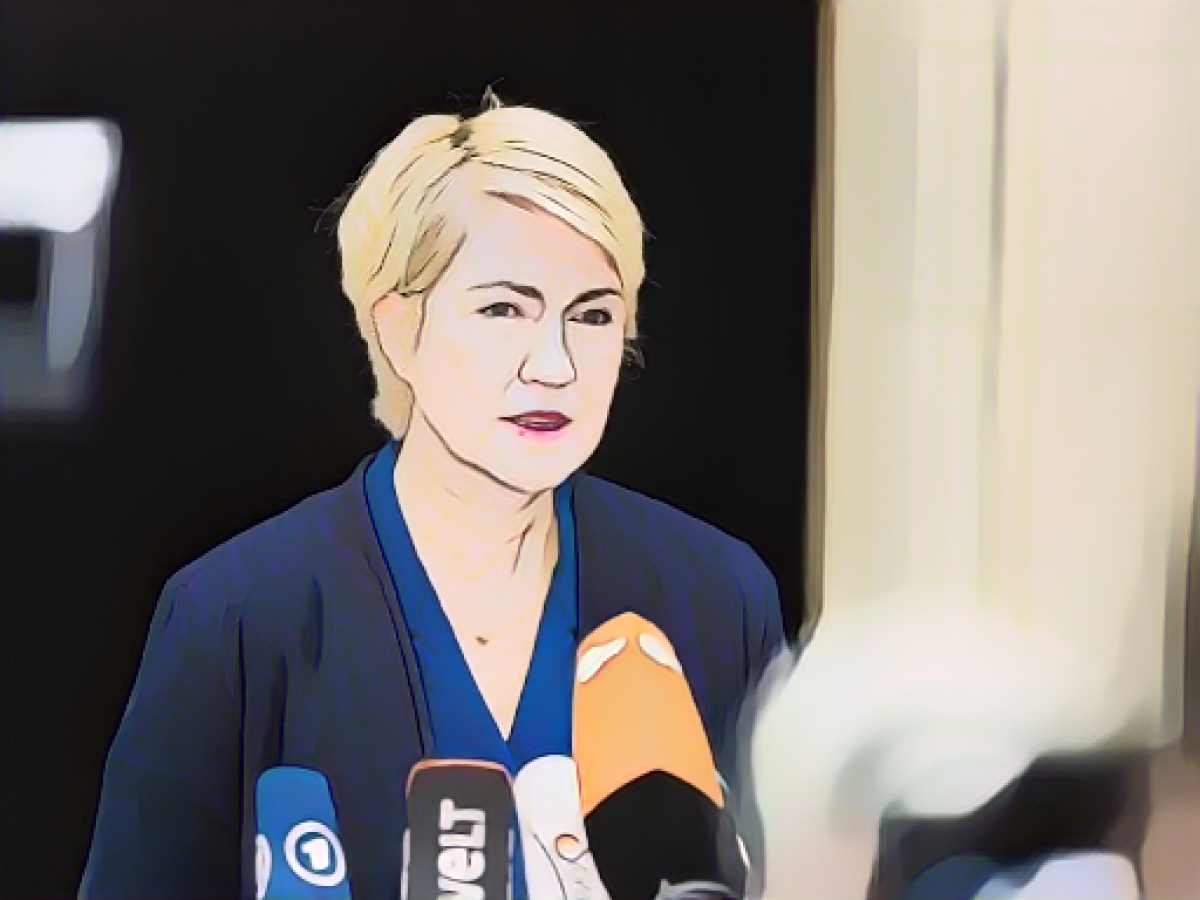Schwesig wants flat-rate allocations from the federal government for refugees
Ahead of the migration summit in Berlin on Monday, Mecklenburg-Western Pomerania's Minister President Manuela Schwesig (SPD) has backed up her demand for more money from the federal government for the care of refugees: "A lump sum of 10,500 euros per asylum seeker. That would be a dynamic system. If more come, there will be more money and if there are fewer, there will be less," she said in Deutschlandfunk's "Interview of the Week", which the station broadcast on Sunday.
The SPD clearly stands for a humanitarian refugee policy and regards the individual right to asylum as a valuable asset. "But we also have to look at the realistic situation on the ground. And that also means that what we want in humanitarian and legal terms also works on the ground," said Schwesig. Cities and municipalities had long since reached their limits when it came to accommodating refugees and providing daycare and school places, and acceptance among the population was dwindling. "And that is why one point is to push back irregular migration and another important point is that we do not leave the municipalities alone with the local tasks," warned the SPD politician.
On Monday, the heads of government of the federal states will meet with Federal Chancellor Olaf Scholz (SPD) in Berlin to discuss measures to limit irregular migration. They will also discuss the costs of caring for and accommodating refugees. According to the federal states, the federal government wants to reduce its share from 3.75 to 1.25 billion euros. They are not prepared to accept this. In a resolution in mid-October, they had demanded a lump sum of 1.25 billion euros and at least 10,500 euros per migrant.
In Schwesig's opinion, the federal and state governments should each share the costs of local accommodation equally. "Because we can't expect the municipalities to stand at the point where they have to decide whether to spend the money on refugee accommodation or a sports field. That creates social discord and I can only advise against it," warned Schwesig.
Mecklenburg-Vorpommern is currently one of only a few federal states that fully reimburses local authorities for accommodation costs. Nevertheless, there are more and more referendums against the construction of new refugee accommodation. "This is the reality and we must not overtax the acceptance of the citizens. And this includes sending out a united signal from the federal government and the federal states on Monday about the rules we are setting for migration and how it will be financed," said Schwesig.
According to a state chancellery spokesperson, Mecklenburg-Western Pomerania is assuming that the federal government will cover 17 percent of refugee costs in the north-east this year. Accordingly, the federal government is expected to provide 71 million euros, while the state will pay around 429 million euros.
The federal states, led by Mecklenburg-Western Pomerania, are urging the federal government to increase its share of funding for refugee care, as current costs are overwhelming local authorities. Mecklenburg-Western Pomerania's Minister President Manuela Schwesig suggested a flat-rate allocation of 10,500 euros per refugee, arguing that this would provide flexibility based on the number of refugees and reduce social discord.
Source: www.dpa.com








